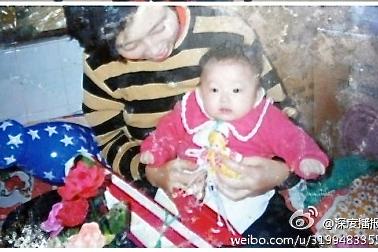Untimely and ineffective adjustment policies meant housing and land prices still soared in China in 2009, despite intervention by the regime. The China Real Estate Blue Book released May 5 comprises the 2009 market analysis and the 2010 market forecast.
The Blue Book, published by the Chinese Academy of Social Science, predicts that housing prices are unlikely to fall this year—mainly because the persistent tight supply and demand in the market will continue to push up prices.
Due to the tight supply and demand, the Chinese housing market suffers from reluctant sellers, idle land, and land speculations, which dwarf the regime’s measure of additional land release and have resulted in no increase of housing supply, according to the book.
The Blue Book analysis is consistent with various mainland media reports that the housing prices ran counter to the regime’s measures to stabilize them since the latter half of 2009. The market has been dominated by speculation and solid investments, while the real demand for residential property has been pushed out.
Certain policies also had an adverse effect because they were incorrectly carried out, according to the Blue Book. Such policies include the real estate transaction levy, which was designed to increase the cost of speculation but became a contributing factor in pushing up housing prices.
Overall, price increases in 2010 may rise at a slower pace than in 2009, which had an increase of 23.6 percent. However, a fast price increase is anticipated for urban areas and major cities.
Chinese economist Mao Yushi said in an interview that yet another factor causes high housing prices: Chinese policies limit the average citizen’s investment chances, and most people invest in housing because it is easy to buy houses and get a loan.
“Housing speculation will continue, and soaring price will continue unless this can be solved,” Mao told Voice of America.
He also said the chance that the tension in the bubble will be released is nearly nil. Chinese asset bubbles will erupt, and the property market will collapse sooner or later, he predicted.
The Blue Book, published by the Chinese Academy of Social Science, predicts that housing prices are unlikely to fall this year—mainly because the persistent tight supply and demand in the market will continue to push up prices.
Due to the tight supply and demand, the Chinese housing market suffers from reluctant sellers, idle land, and land speculations, which dwarf the regime’s measure of additional land release and have resulted in no increase of housing supply, according to the book.
The Blue Book analysis is consistent with various mainland media reports that the housing prices ran counter to the regime’s measures to stabilize them since the latter half of 2009. The market has been dominated by speculation and solid investments, while the real demand for residential property has been pushed out.
Certain policies also had an adverse effect because they were incorrectly carried out, according to the Blue Book. Such policies include the real estate transaction levy, which was designed to increase the cost of speculation but became a contributing factor in pushing up housing prices.
Overall, price increases in 2010 may rise at a slower pace than in 2009, which had an increase of 23.6 percent. However, a fast price increase is anticipated for urban areas and major cities.
Chinese economist Mao Yushi said in an interview that yet another factor causes high housing prices: Chinese policies limit the average citizen’s investment chances, and most people invest in housing because it is easy to buy houses and get a loan.
“Housing speculation will continue, and soaring price will continue unless this can be solved,” Mao told Voice of America.
He also said the chance that the tension in the bubble will be released is nearly nil. Chinese asset bubbles will erupt, and the property market will collapse sooner or later, he predicted.



